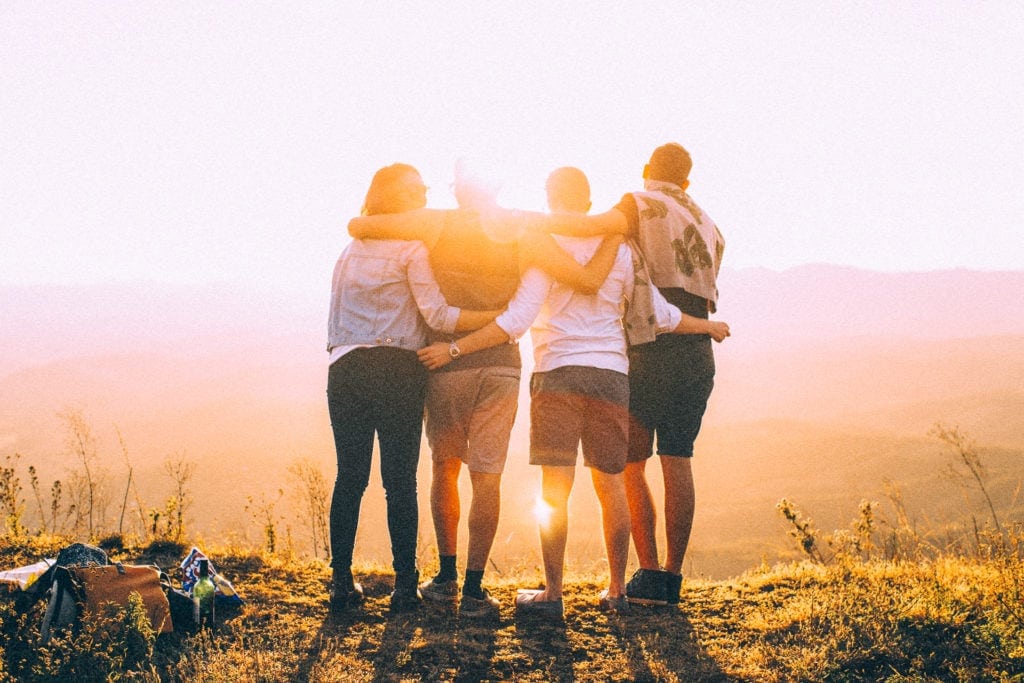By Andi Cartier
DBSA-WV
Why care? Each of us, whether we realize it or not, knows many people who have been impacted in some way by mental illness. These may include family members, friends, co-workers, customers, service providers and acquaintances.
One in five people in America are living with a mental illness and about one fourth of these individuals are living with a serious mental illness. Three million adults are living with a mental illness and a substance use disorder.
During May, national, state and local organizations join forces to raise awareness of mental health facts and stamp out myths, fight stigma and educate the public. These groups also advocate for policies and service-delivery systems that support people living with mental illness and their families.
This year the National Alliance on Mental Illness (NAMI) has launched the “Why Care?” campaign. NAMI notes that ‘Care’ is a simple four-letter word that has the power to make a life-changing impact for those affected by mental health conditions. Through our own words and actions, we can reduce the stigma and other barriers these individuals face as they pursue wellness and other life goals (nami.org).
What can I do as an individual to make a positive difference? You can do a lot.
- You can learn the facts, develop an understanding of needs, and become familiar with the variety of support options available through online and community resources.
- You can listen to the stories of people living with a mental illness.
- You can watch for opportunities in your daily life to raise awareness of facts, needs and resources.
What can I do as someone who is living with mental illness? You can share your story.
- You are not alone – and you can let others know that they are not alone.
- You can make a difference for yourself and others by sharing your experiences and perspective. (What has helped? What hasn’t? What has been most discouraging? What has given you hope?)
The National Institute of Mental Health (NIMH) offers the latest professional and research information about mental disorders and a range of related topics. Over 75 national nonprofit organizations participate in the NIMH Outreach Partnership Program as National Partners, including professional, consumer, advocacy and service-related organizations (nimh.nih.gov).
Here in West Virginia, NIMH’s only national partner is the Depression and Bipolar Support Alliance (DBSA). DBSAlliance.org states “DBSA is led by and created for individuals living with a mood disorder and that experience informs everything that we do.” DBSA is nationally recognized for its peer support specialist training services, advocacy work, peer support network and as an expert on mood disorders. DBSA focuses on the two most prevalent mental health conditions nationally, depression and bipolar disorder, which account for 90% of the nation’s suicides.
The DBSA-WV State Office is in Buckhannon at 61 Marion Street. There are several DBSA service locations throughout West Virginia (dbsawv.org). Diana Thompson, Executive Director for DBSA-WV, describes these as places where people with depression or bipolar disorder and those who care about them can share experiences, discuss coping skills and offer hope to one another. Free literature on all kinds of mental health illnesses is available for people to pick up, including information specifically focused on teens, men and women and information designed for family members and caregivers.
In Buckhannon, “Brown Bag by the Bridge” provides daily walk-in time Monday through Friday at the DBSA-WV office, from 11 a.m. to 2 p.m. Thompson designed Brown Bag by the Bridge to mirror a coffee shop experience, a place where people affected by mood disorders can talk with their peers in a safe and supportive environment. Individuals are welcome to bring their lunch (in a brown bag) if they wish. Free coffee and bottled water are available.
Buckhannon Peer Support Groups are offered twice a month at the DBSA-WV office, on the second and fourth Mondays at 6:30 p.m. Thompson notes that participants need not worry about stigma when they show up. “It’s a place where people won’t judge you and it is important for people to know that what is said here stays here.”
One DBSA support group participants states “The first place I found shelter from the storm was at my DBSA support group meeting, where I bonded with new, accepting friends and found role models who gave me faith that recovery was possible.” Another says “I think the reason I was depressed for so long was that I felt excluded from everything, even my family. Finding people who accept you for who you are — I can’t put a price tag on that.”
Additional West Virginia communities hosting DBSA Peer Support Groups include Berkeley Springs, Dunbar, Fairmont, Harpers Ferry, Huntington, Martinsburg, Morgantown, Parkersburg, Richwood, Romney and Ronceverte. More support groups are being formed.
For more information, please contact Diana Thompson, Emily Moore or Andi Cartier at 304-609-2662 or dbsawv@outlook.org.













